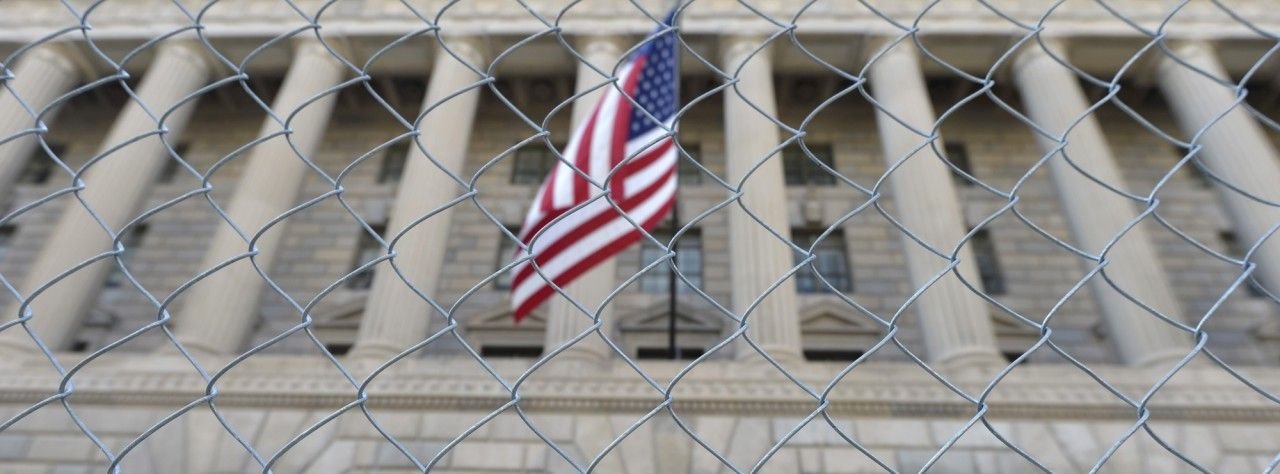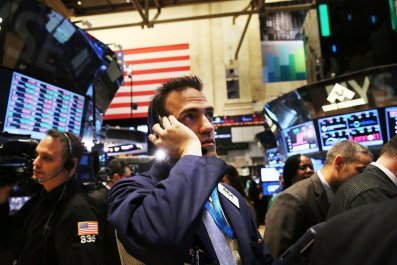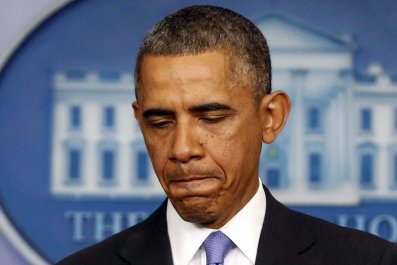Could the nation's economy be rated so lowly that it's underrated? Perhaps.
If the Dow's 35 record highs this year are a sign of what the future holds, it seems the Sturm und Drang in the run-up to the Congressional shutdown of the federal government last month has been overstated - and that the economy may even be making way for gains in the new year.
Most of the financial data released this week were auspicious: The number of people filing for unemployment benefits fell for a fifth straight week, on the back of a six-year low in unemployment claims in September. Meanwhile, glimmers of broader improvement have reinvigorated the stock market, allowing it to hold on to its recent gains. Underpinning all that was a report from the Labor Department last week that the economy produced 204,000 jobs in October after a dreary spring and summer. Consumer borrowing is on the rise and worker productivity is up.
Could it be that the U.S., in spite of Capitol Hill's best efforts, ducked the shutdown bullet?
"The stock market is always forward-looking so, to that extent, you can be pretty optimistic," says Neal Wolkoff, former chairman and CEO of the American Stock Exchange, which is now part of NYSE Euronext. "It's saying [that] as far as corporations go, there is the expectation of expansion ahead. It's not necessarily an indicator for today - the stock market may be telling us that in a few quarters the market could be better."
This week, Jan Hatzius, chief economist of Goldman Sachs, came out and said what so many are thinking: He sees "little evidence" that the "fiscal follies" in Washington "materially impacted" the U.S. economy. Hatzius forecasts a growth rate of 3 to 3.5 percent in 2014, and "above-trend growth" in the first quarter, based on a "meaningful acceleration in real consumer spending," an uptick in capital spending fueled by improved credit availability and a deal by both parties in Congress to resolve their remaining fiscal issues.
For the record, Hatzius is no Wall Street Pollyanna. He was widely praised for his bearish forecasts leading up to the financial crisis of 2008.
Wall Street's Veteran's Day performance saw it shooting to a record high just shy of the 16,000 mark, where it has continued to hover. The Dow has climbed five straight weeks and is now up around 20 percent on the year - outstripping the leaps of the past decade (yes, that's also a good sign). Not since 2003, when it rose 25 percent, has the market performed so well.
As Hatzius noted, key business surveys of the past week "surprised on the upside," and J.P. Morgan released a report stating that the global economy "is cruising at trend pace near 3 percent, even as the recovery broadens."
That is not to say everything is looking up, cautions Wolkoff, a securities and derivatives consultant at his firm Wolkoff Consulting Services LLC in South Orange, N.J. "Unless you are 8 years old, the numbers you're seeing right now are still kind of horrendous," he says, since the recoveries following the recessions of the 1980s and 1990s were far more impressive. "You can't really yet call it a thriving economy."
The stock market's propensity for rallying of late might even be a little bit deceiving, says Raymond Carbone of Paramount Options in New York. Investors are flocking to the stock market from competing markets - such as commodities - because volatility has tanked in other areas and, therefore, has made it harder for traders to make money off zigzagging prices.
"Lots of volatility and movement means lots of opportunity, while lack of movement means people go elsewhere," he says. "I don't think the stock market gains are really being driven by a robust economic picture so much as a taste for higher returns. There is a lot of money on the sidelines that's not participating in this for that reason."
Volatility in commodities such as oil and gas and other energy products is at a 20-year low, he notes. Not so with stocks, which have had the pops and drops that are an investment manager's ideal. "Stocks," Carbone says, "are stealing all the thunder."
But consumers don't seem to mind. Looking toward the holidays, a nationwide survey out this week from the National Association of Convenience Stores (NACS) in Alexandria, Va., signals an end to three months of consumer pessimism. "Overall, consumers feel more optimistic than they have since August and that bodes well for retailers of all types seeking strong holiday sales to end the year on a positive note," it predicts. That makes sense, because August is when the jobs market started firming up.
Typically, consumer optimism rises in tandem with a decrease in prices at the pump, says NACS vice president Jeff Lenard. Accordingly, the latest monthly survey sees a majority of its respondents expecting gasoline prices to fall.
There may be some hazards ahead, however. Morgan Stanley projects this holiday season may be the weakest since 2008, the year the financial crisis crushed spending. "Consumers' willingness to open their pocketbooks is less clear than their ability to spend," the bank says. "But in 2014, we expect cumulative gains in wealth."
The final quarter will bring underwhelming economic growth of around 1.5 percent, Goldman predicts, "although the economy should gain momentum" going into next year.
"I would say right now we are just skimming along," Wolkoff says. "This is not yet a full-blown financial recovery."
























